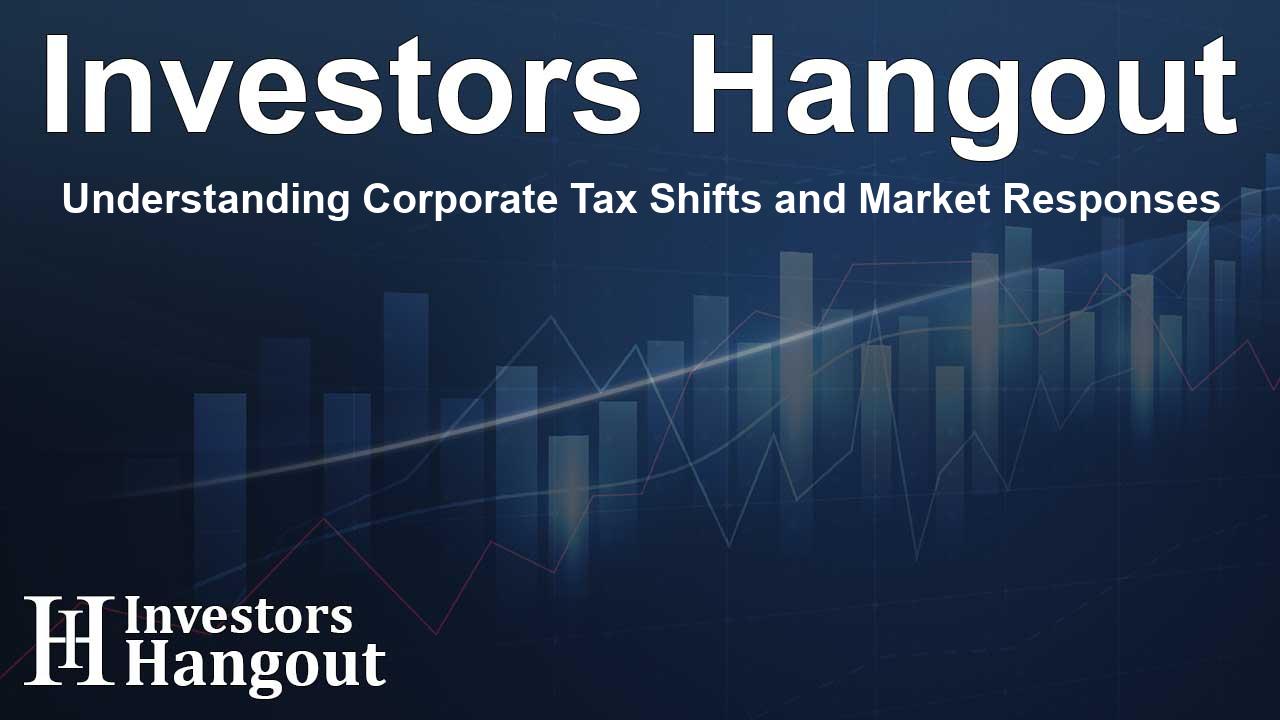Understanding Corporate Tax Shifts and Market Responses

Rising Corporate Tax Rates: What Investors Should Know
In the coming weeks, voters will play a crucial role in determining the future direction of our economy. One major area of concern is the potential increase in corporate tax rates, which might shape the operational landscape for businesses and the economic environment for taxpayers.
The impact of legislative decisions on corporate America cannot be understated. Recently, Kamala Harris, the current Vice President and a prominent political figure, proposed raising the corporate tax rate from the historically low 21% to 28%. This initiative aims to bolster federal revenue significantly, expected to bring in around $4.1 trillion between 2025 and 2034.
Corporate Tax Increases: A Historical Perspective
Historically, tax increases, particularly for corporations, have often led to uncertainty within the investment community. However, let’s take a look at the last instances of corporate tax increases and their impact on stock performance. Since 1950, there have been a few significant tax increases: in the years 1950, 1951, 1952, 1968, and 1993. During these times, the S&P 500 has shown an average annual return of 13% in the years following tax hikes.
This suggests that even amidst potential fears of higher taxation, the stock market has demonstrated resilience, often thriving despite increased taxes. It’s crucial for investors to understand that economic trends can defy expectations laid out in conventional wisdom.
Concerns Beyond Tax Rates
Investors should keep in mind that the current market valuations present a more pressing concern than the possibility of higher corporate tax rates. Currently, the S&P 500 has reached valuations higher than historical averages. The Shiller price-to-earnings (P/E) ratio, which stands at around 36.9 as of a recent date, indicates that stocks are trading at significantly elevated levels compared to the historical average of 17.16 since 1871. Such high valuations often lead to considerable market corrections.
This raises a valid point for consideration: While higher corporate taxes might seem daunting, the existing high valuation levels in the market could potentially overshadow other issues. Previous instances show that when the Shiller P/E ratio exceeds 30 during bull markets, stocks have typically experienced losses ranging from 20% to a staggering 89% in subsequent years.
Investment Strategies Moving Forward
Given the uncertainty regarding tax implications and market valuations, investors must strategize their portfolios wisely. Continuous market fluctuations necessitate a detailed analysis of stock selections. In fact, now may be the ideal time to reconsider entry points regarding popular indexes like the S&P 500 or high-growth tech stocks.
Despite potential short-term volatility, long-term investors might find particular sectors more promising, even in the face of changing tax landscapes. It’s beneficial to diversify beyond large indexes, potentially looking into sectors poised for growth such as technology or renewable energy.
Frequently Asked Questions
Why are corporate tax rates a significant concern for investors?
Corporate tax rates affect companies’ bottom lines, influencing investment decisions and strategic planning, thereby impacting stock value.
How have past corporate tax increases affected stock markets?
Historically, the stock market has performed well following tax increases, with the S&P 500 averaging a 13% gain post-increase since 1950.
What is the current concern regarding P/E ratios?
The Shiller P/E ratio currently indicates overpriced stocks, historically associated with significant market corrections when ratios exceed 30.
Should I invest in the S&P 500 right now?
Consider market conditions carefully; while the S&P 500 is historically resilient, current valuations could imply a correction, necessitating thorough evaluation before investing.
What sectors might perform well despite tax changes?
Sectors like technology and renewable energy are believed to have robust growth potential, even amid changing taxation dynamics, making them attractive investment opportunities.
About Investors Hangout
Investors Hangout is a leading online stock forum for financial discussion and learning, offering a wide range of free tools and resources. It draws in traders of all levels, who exchange market knowledge, investigate trading tactics, and keep an eye on industry developments in real time. Featuring financial articles, stock message boards, quotes, charts, company profiles, and live news updates. Through cooperative learning and a wealth of informational resources, it helps users from novices creating their first portfolios to experts honing their techniques. Join Investors Hangout today: https://investorshangout.com/
Disclaimer: The content of this article is solely for general informational purposes only; it does not represent legal, financial, or investment advice. Investors Hangout does not offer financial advice; the author is not a licensed financial advisor. Consult a qualified advisor before making any financial or investment decisions based on this article. The author's interpretation of publicly available data shapes the opinions presented here; as a result, they should not be taken as advice to purchase, sell, or hold any securities mentioned or any other investments. The author does not guarantee the accuracy, completeness, or timeliness of any material, providing it "as is." Information and market conditions may change; past performance is not indicative of future outcomes. If any of the material offered here is inaccurate, please contact us for corrections.









